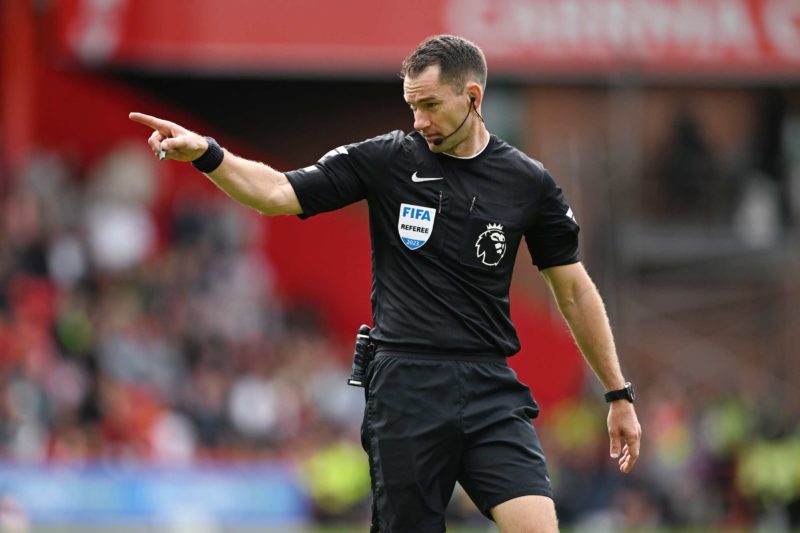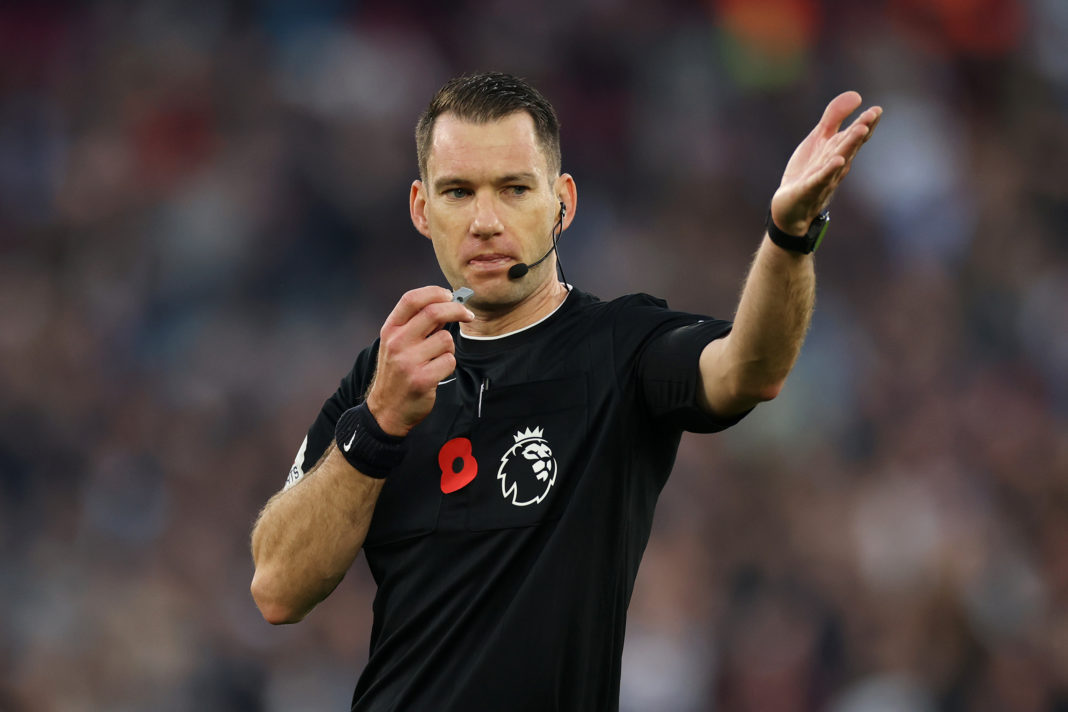As Arsenal prepare to take on Manchester United this Sunday, a particular name seems almost as inevitable on the teamsheet as a controversial VAR decision.
Jarred Gillett, the Australian official, is set to occupy the VAR room for the third time in Arsenal’s four Premier League games this season.
The question that poses itself is whether this repetition is a benign coincidence or a cause for genuine concern.
- Jarred Gillett is set to oversee VAR for the third Arsenal game this season.
- While Manchester United have seen four different VAR officials, Arsenal’s consistent VAR presence raises questions about potential bias.
- A consistent VAR presence can have implications on how a match — and by extension, a season — can play out.

In the seemingly endless debates over VAR, a new focal point has emerged in the form of Jarred Gillett, who finds himself appointed as the VAR official for Arsenal yet again this Sunday.
He has thus far been in charge for Arsenal’s matches against Nottingham Forest and Crystal Palace.
Meanwhile, Manchester United have had the luxury of four different VAR officials in as many games.
One can’t help but ask if a consistent VAR presence, especially one that has seen Arsenal through varying results, offers an edge or, rather, lends itself to unintentional biases.
When officials, like tea leaves, are steeped too long in the same brew, they can either add depth or leave a bitter taste, usually the latter.
In stark contrast, Manchester United have experienced a carousel of VAR officials, each offering a fresh set of eyes and, potentially, interpretations.
In the realm of psychology, it’s well-established that human biases can and do form subtly, often without conscious recognition.
This isn’t to say that any official, including Gillett, would intentionally favour one team over another.
However, psychology suggests that repeated exposure to the same set of circumstances, or in this case, the same football team, can unconsciously shape one’s judgement.
Known as the ‘mere-exposure effect’, this psychological principle posits that familiarity can lead to preference.
So, if an official regularly finds themselves presiding over the same team’s matches, even their best efforts to remain impartial could be compromised.
This is a consideration that should not be disregarded when it comes to something as pivotal as officiating in the Premier League, where the stakes are high and margins for error are perilously slim.
The official line from the Premier League is that VAR appointments are made with impartiality and fairness in mind. However, in a sport where an errant whistle or a questionable decision can drastically alter the course of a match, or even a season, having the same VAR official repeatedly can provoke questions.
Arsenal’s next game against Manchester United is a high-stakes affair, especially under the officiating eye of Anthony Taylor.
Taylor, who has had his own storied past with Arsenal, could find his decisions under even greater scrutiny, given Gillett’s notable presence once more.
The reality is, whether it’s confirmation bias or genuine concerns of influence, the frequent appearance of the same VAR officials can do little to quell the rising tides of scrutiny in a season already full of unpredictability.

